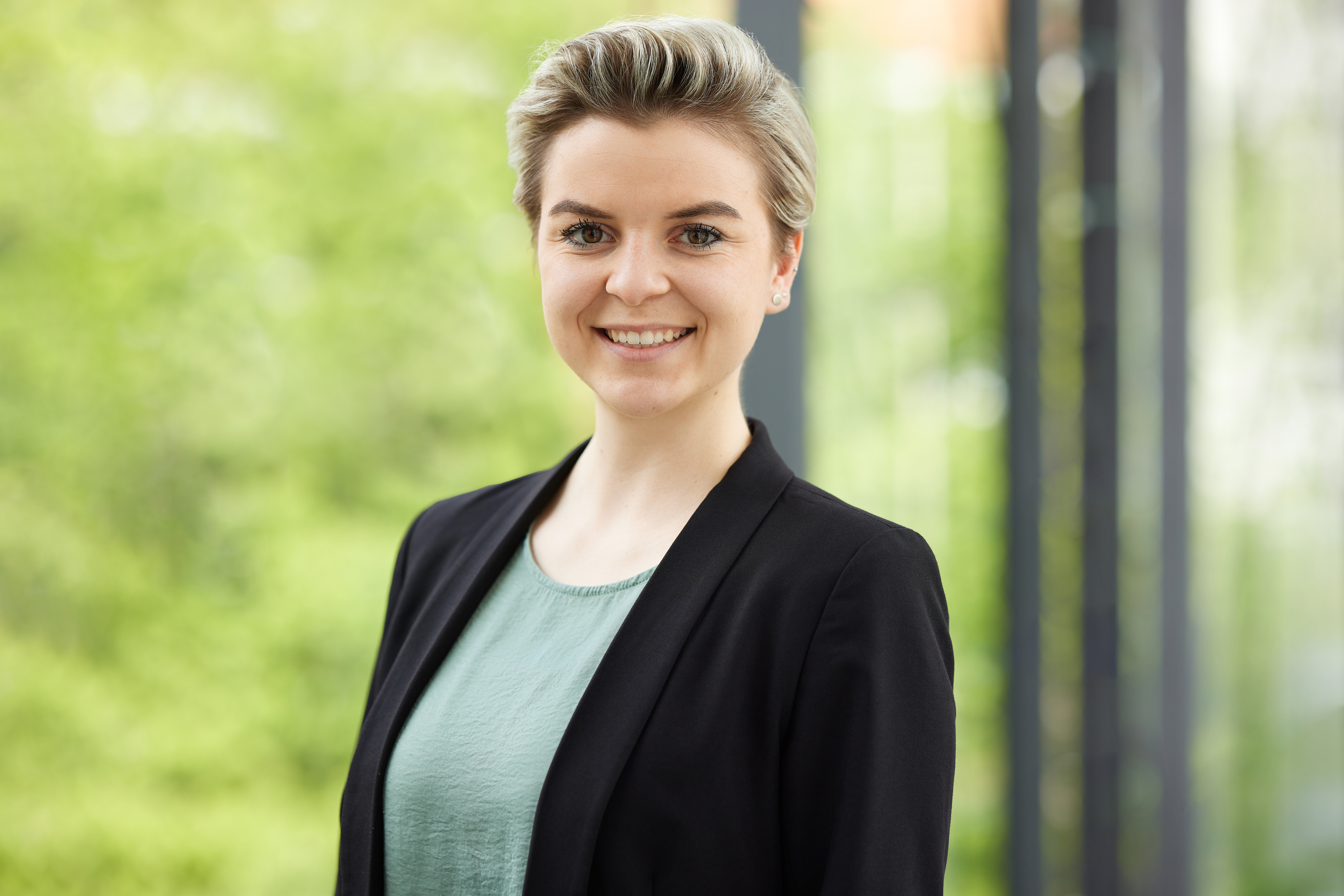Helen Haug works at the Fraunhofer CCPE in the Research Department “Circular Additives and Compounds” and in “Advanced Recycling”. Her topic, the investigation and optimization of odor-contaminated plastic recyclates in order to obtain high-quality materials and keep plastics in the cycle, plays an important role in both areas. She is currently working primarily on the evaluation and use of additives and odor barrier layers to reduce odor.
What are you working on at the Fraunhofer CCPE? What creative ideas are you currently pursuing in your field of research?
My activities at the Fraunhofer CCPE focus on the odor evaluation of plastics using instrumental analytical and human sensory methods. The aim is to develop high-quality plastics and, above all, plastic recyclates, whereby odor plays an important role as it can limit the use of the materials. In addition to evaluating additives for odor reduction, we are also working on strategies for efficient odor measurement, for example.
Do you have a specific project example or why is this interesting for industry/society?
Odor is a decisive quality feature, especially for everyday products. In order to keep plastic recyclates in the cycle and not lose them in downcycling, they must achieve a certain quality. This includes physical material properties, but also the odor, which has a significant influence on the quality of the end product. Odor optimization can be achieved through certain process steps, for example. We are also investigating the use of additives and odor barrier layers to reduce odor release.
What has been your highlight at Fraunhofer CCPE so far?
I like the inter-institutional and interdisciplinary cooperation at eye level at Fraunhofer CCPE, from project meetings to networking meetings. It's great to see how the different aspects of the plastics circular economy are covered in the cluster and interact with each other, enabling a holistic approach.
What characterizes your work?
My work is characterized by industry-oriented and up-to-date research, which also deals with sustainable and future-relevant topics. The interdisciplinary collaboration with experts from different fields enriches my projects immensely. I also appreciate the friendly atmosphere with my colleagues at the CCPE and the institute, which encourages creative exchange.
What do you wish for the future of Fraunhofer CCPE?
I hope that we will continue to work together to strengthen the circular plastics economy and expand the opportunities for resource-efficient work through science in order to make a decisive contribution to sustainability.
